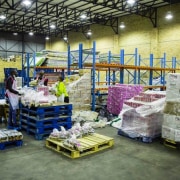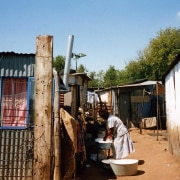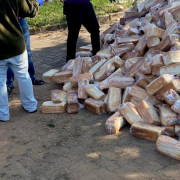|
Getting your Trinity Audio player ready...
|
Guest contributors
Since establishing the Lockdown Life blog several weeks ago, Corruption Watch has received many personal experiences from readers in the national lockdown. We’ve heard everything from heart-warming lockdown survival hacks, and stories of small business owners and employees alike who worry about the future of their companies, to general observations of compliance with restrictions.
Although South Africa is not the only country gripped by the Covid-19 pandemic, it is a society with stark inequality, with millions living in dire poverty. Sustained food security for these vulnerable communities is a constant struggle under normal circumstances, requiring some to seek informal job or trading opportunities to survive. So it was inevitable that while on the one hand the government has to lead the management of the infectious disease, it also has to implement on-the-ground solutions to curb the hunger that many communities face.
The most obvious way to do this is through food parcels that are given to the most vulnerable families across the country. The successful distribution of such could never be easy, as it requires co-ordinated, well monitored efforts that ensure the scales are balanced and no community is overfed at the expense of another. To a large extent, many of these efforts by government, civil society and ordinary citizens – as observed in the media – are reaching their targets and the urgency of hunger is mitigated. However, for many other communities in our country, the needs of the poor and hungry are not met. It is not because they are too far flung to reach, but simply because greed and corruption have taken over.
The stories are best told by Lockdown Life contributors from these communities:
| Nongcobo Shangase I am staying in New Germany, Durban, in the eastern buffer RDP houses. We are suffering so badly during this lockdown. We have no food, despite our councillor taking our numbers to prepare for distribution. Since lockdown started, food parcels are given to their friends using our ID numbers. It’s such a disgrace and just yesterday they gave a few people just 1kg mielie meal; 1kg sugar; 1kg instant porridge; 100 teabag packet of Trinco; two cans of chakalaka baked beans; two packets of spaghetti; 500g of macaroni; two 500ml of cooking oil; 750g of peanut butter and 400g of biscuits. Most of the people who arrived for the parcels were chased away. This community needs help, it is very bad. |
| Titus Mofokeng Corruption by our councillors and their block committees in Moloto village: There was an announcement recently that food parcels for communities affected by the Covid-19 lockdown would no longer to be collected by councillors due to the corruption that was experienced in the distribution list. Despite this, they are still compiling the lists. Our suspicions as a community is that they could be creating a fake database for their selfish gain. I personally called the councillor to find out what is the correct process to get the food parcels to our community, and was told they are no longer allowed to get the lists from the community. They are waiting for instructions from the mayor’s office. Please, we need these councillors to be investigated because they have been corrupt. |
| Sinovuyo Neti In one house, three people – a sister, brother and niece – all got food vouchers that are meant to be one per family. Please there must be something that can be done about this corruption. Thank you. |
| Victor Khumalo We need your advice on where we can report fraud and corruption regarding Covid-19 food parcels. I heard MEC Panyaza Lesufi saying councillors should not be part of the distribution of food parcels, but in my community in Ekurhuleni this continues to happen. Two councillors are actively involved, using their friends to handle food issues. What gives us a headache is that they come with food to the community and decide who should get it and who should not. Obviously if they don’t like you, or you’re not on their side, you won’t get anything. Please assist, we need your help or contacts of the relevant structure where we can report this. Alternatively, please advertise Covid-19 food parcel fraud hotline on TV or online. |








